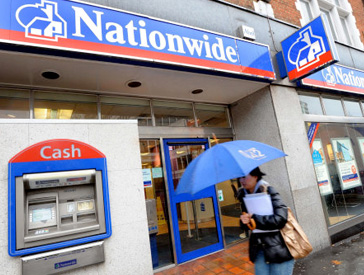The best current accounts for teenagers
Banks are falling over each other to lure in teens – which means there are perks on offer

A free daily email with the biggest news stories of the day – and the best features from TheWeek.com
You are now subscribed
Your newsletter sign-up was successful
Last week Nationwide joined the banks and building societies targeting younger customers by launching a new teenage current account – FlexOne. Secondary school age children are an attractive prospect for banks. They may not be ready to take out numerous financial products but hook them young and they are likely to stay with a bank for decades to come.
There is a huge amount of inertia among bank customers. Once we have opened a current account most of us don’t switch banks and tend to get all our financial products (mortgages, loans and savings accounts) from the same bank. So, get a teenager to open an account with your bank and you could have a customer for decades to come.
That’s why banks want teenagers, but why should teenagers be interested in banks? Letting your teenagers open current accounts will help them learn how to budget – pay their allowance in once a month and they have to make it last until the next ‘pay day’. An account with a linked savings account can also help teach them the value of setting aside a little cash each month. It is also the natural progression from a piggy bank as they can now earn interest on their money.
The Week
Escape your echo chamber. Get the facts behind the news, plus analysis from multiple perspectives.

Sign up for The Week's Free Newsletters
From our morning news briefing to a weekly Good News Newsletter, get the best of The Week delivered directly to your inbox.
From our morning news briefing to a weekly Good News Newsletter, get the best of The Week delivered directly to your inbox.
Another benefit is that an account with a debit card can allow your child to pay with plastic rather than carrying around cash that could be lost or stolen. (If parents are worried about their child spending on their card recklessly most accounts offer the option of a card that only works at ATMs.)
Getting children familiar with how bank accounts work, how to budget and the importance of saving will really help them when they leave home either to go to university or to start their career.
There are also plenty of attractive offers out there that could benefit your teenager. For example, Nationwide’s FlexOne account offers 25% off Vue cinema tickets for the first year, which will appeal to teenagers. Meanwhile parents will get piece of mind that there are no fees or charges on the account, so no risk of unexpected bills.
If you are looking for an account that pays a decent interest rate then Lloyds Bank and TSB both offer an Under 19s Account that pays 2.5% interest on balances up to £2,500. Plus, account holders who are over 17 can save up to £56 on AA driving lessons.
A free daily email with the biggest news stories of the day – and the best features from TheWeek.com
Santander offer a 123 Mini Current Account for children aged 11 to 18. Like the adult account it pays a tiered interest rate – 1% on balances over £100, 2% on £200 or more and 3% on balances between £300 and £2,000. So, this is a good account if your child is going to have a lot of money sitting in it.
But, you can protect your child’s savings from being spent and get a better interest rate by putting it in a Junior ISA. The Coventry and Nationwide both have JISAs paying 3.25% interest.
Once your child is set up with a current account make sure you keep an eye on the balance and support them as they learn to budget and handle their own money. The Money Advice Service has a wealth of articles and resources to help you teach your child about money.
-
 The Olympic timekeepers keeping the Games on track
The Olympic timekeepers keeping the Games on trackUnder the Radar Swiss watchmaking giant Omega has been at the finish line of every Olympic Games for nearly 100 years
-
 Will increasing tensions with Iran boil over into war?
Will increasing tensions with Iran boil over into war?Today’s Big Question President Donald Trump has recently been threatening the country
-
 Corruption: The spy sheikh and the president
Corruption: The spy sheikh and the presidentFeature Trump is at the center of another scandal